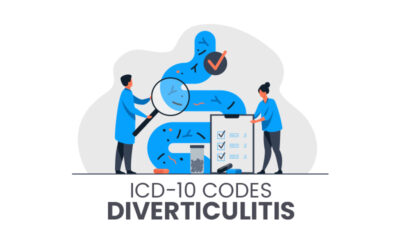According to the Centers for Disease Control and Prevention (CDC), more people in the United States are addicted to nicotine (the drug found in tobacco) than any other drug. Many clinics are providing preventive services to help tobacco addicted people to control their use and revert to a healthy life. Also, the Affordable Care Act (ACA) requires insurance plans to provide coverage for preventive services related to tobacco use.
Health insurance plans mainly cover two types of preventive services to curb tobacco use such as:
- Tobacco use screening for all adults and adolescents
- Tobacco cessation counseling for adults and adolescents who use tobacco, and expanded counseling for pregnant women
Even so, different healthcare plans have different coverage policies and accept different diagnosis and procedural codes to provide reimbursement. Healthcare providers and medical billing companies should ensure accurate medical coding to receive proper reimbursement from various health insurance plans.
Medicare
Two levels of tobacco cessation counseling are covered under Medicare Part B for symptomatic and asymptomatic patients such as intermediate and intensive. During a 12-month period, two cessation attempts are covered while each attempt may include a maximum of four intermediate or intensive counseling sessions. In this way, the total annual benefit covers up to eight smoking cessation counseling sessions. Once 11 full months have passed after the first Medicare-covered cessation counseling session, the patient may receive another eight counseling sessions during a second or subsequent year. However, you must ensure that the following criteria are met at the time of service to receive Medicare payment for your counseling services:
- Patients must remain competent and alert at the time when the counseling is provided to them.
- Counseling must be given by either a physician or other Medicare-recognized healthcare professional.
The codes used to report counseling services are slightly different for symptomatic patients and asymptomatic patients.
Symptomatic Patients
Symptomatic patients are tobacco users who have been diagnosed with a disease or an adverse health effect linked to tobacco use (that has been found by the U.S. Surgeon General), and take a therapeutic agent for which the metabolism or dosing is affected by tobacco use, according to the information approved by the U.S. Food and Drug Administration (FDA).
The procedural and diagnosis codes to be used are as follows:
HCPCS/CPT Codes
- 99406: Intermediate, Smoking and tobacco use cessation counseling visit is greater than three minutes, but not more than 10 minutes
- 99407: Intensive, Smoking and tobacco use cessation counseling visit is greater than 10 minutes
ICD-9
- 305.1: Tobacco use disorder
- 649.0x: Tobacco use disorder complicating pregnancy, childbirth, or peurperium
- 989.84: Toxic effect of tobacco
ICD-10
- F17.200: Nicotine dependence, unspecified, uncomplicated
- F17.201: Nicotine dependence, unspecified, in remission
- F17.210: Nicotine dependence, cigarettes, uncomplicated
- F17.211: Nicotine dependence, cigarettes, in remission
- F17.220: Nicotine dependence, chewing tobacco, uncomplicated
- F17.221: Nicotine dependence, chewing tobacco, in remission
- F17.290: Nicotine dependence, other tobacco product, uncomplicated
- F17.291: Nicotine dependence, other tobacco product, in remission
Asymptomatic Patients
Asymptomatic patients are tobacco users with no symptoms of tobacco-related disease. The codes to be used for such patients are:
HCPCS/CPT Codes
- G0436: Intermediate, Smoking and tobacco use cessation counseling visit greater than three minutes, but not more than 10 minutes
- G0437: Intensive, Smoking and tobacco use cessation counseling visit is greater than 10 minutes
ICD-9
- 305.1: Tobacco use disorder
- V15.82: Personal history of tobacco use
ICD-10
- F17.200: Nicotine dependence, unspecified, uncomplicated
- F17.201: Nicotine dependence, unspecified, in remission
- F17.210: Nicotine dependence, cigarettes, uncomplicated
- F17.211: Nicotine dependence, cigarettes, in remission
- F17.220: Nicotine dependence, chewing tobacco, uncomplicated
- F17.221: Nicotine dependence, chewing tobacco, in remission
- F17.290: Nicotine dependence, other tobacco product, uncomplicated
- F17.291: Nicotine dependence, other tobacco product, in remission
- Z87.891: Personal history of nicotine dependence
Both coinsurance and deductible apply in the case of symptomatic patients and both of these are waived for asymptomatic patients.
Medicaid
Several states offer some payment when individual tobacco cessation and treatment counseling is provided for Medicaid patients. For example, as per the ACA, the states are required to expand Medicare coverage of cessation services for pregnant women.
It is required to contact your state Medicaid office to learn about the coverage policies in your specific state. The Centers for Medicare and Medicaid Services also encourages state partners to give support for smoking cessation programs by ensuring coverage for all FDA-approved smoking cessation medication without requiring a co-payment or other financial barrier.
Private/Commercial Plans
It is required that private insurers provide evidence-based tobacco cessation counseling and interventions to all adults and pregnant women. Even so, the benefits offered by private insurers are subject to specific plan policies. A thorough medical insurance verification process will help understand what specific interventions are included and to which extent such interventions are covered. The codes used are as follows.
HCPCS/CPT Codes
- 99406: Intermediate, Smoking and tobacco use cessation counseling visit is greater than three minutes, but not more than 10 minutes
- 99407: Intensive, Smoking and tobacco use cessation counseling visit is greater than 10 minutes
- S9075: Smoking cessation treatment
- S9453: Smoking cessation classes, Non-physician provider, per session
- 99381-99397: Preventive medicine services, Comprehensive, preventive evaluation based on age and gender to include appropriate history, examination, counseling/anticipatory guidance, risk factor reduction interventions, and related plan of care
- 99078: Physician educational services, Group setting (e.g., prenatal, obesity, diabetes)
ICD-9
- 305.1: Tobacco use disorder
- 649.0x: Tobacco use disorder complicating pregnancy, childbirth, or puerperium
- 989.84: Toxic effect of tobacco
Self-pay patients (uninsured patients or patients having limited coverage by their carrier) can opt for flexible spending accounts (if smoking cessation is an allowable expense), and employee assistance programs in some cases and out-of-pocket spending.




